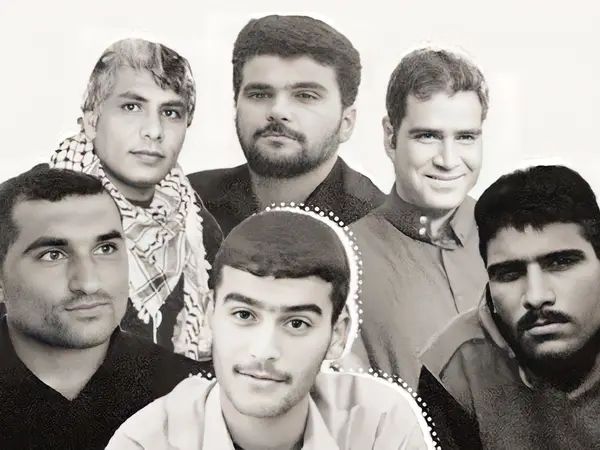Amnesty International has urged Iran to drop the imminent execution of six ethnic Arab men and three other prisoners whose gave “tortured-tainted” confessions.
The international rights body said the prisoners arrested in the oil-rich Khuzestan province had been denied their right to a fair trial and their detention is “arbitrary”.
The execution of Adnan Ghobeishavi, 25, Moein Khanfari, 28, Mohammad Reza Moghaddam, 29, Salem Mousavi, 39, Habib Deris, 42, and Ali Majdam, 43 could take place at any time after a Supreme Court ruling on March 6 upheld the sentences against them.
In a separate tweet Amnesty International also voiced concern over the fate of three other detainees in Esfahan.
“Majid Kazemi, Saleh Mirhashemi and Saeed Yaghoubi are at imminent risk of execution at central Esfahan prison (also known as Dastgerd prison) after Iran’s Supreme Court upheld their unjust convictions and death sentences in early May 2023.”
After nationwide anti-government protests last year, which is still not fully contained, the Iranian regime has embarked on a wave of executions that has seen dozens hanged this year. Activists are concerned that the executions aim to intimidate the population from further protests.
The regime used overwhelming force and military weapons to kill more than 500 civilians during the protests. Hundreds of others received permanent bodily injuries, including loss of eyes because of shotgun pellets fired at the faces of protesters. More than 20,000 were arrested.
The London-based human rights watchdog said on May 12 that the six should have access to their families, lawyers and adequate medical care pending their release.
“Their group trial was grossly unfair. The men were denied lawyers of their own choosing and were never allowed access to their court-appointed lawyer, even at trial. The authorities have barred them and their lawyer from accessing their casefile and verdict,” Amnesty said.
According to the report, the men's "torture-tainted" confessions were used by the Revolutionary Court in Ahvaz to sentence them to death on February 14 on the charge of "waging war against God" following the armed operations conducted by a separatist group in which members of the security forces were killed.
Amnesty said that the men, who have denied the charges, were neither allowed lawyers of their own choosing nor access to their court-appointed lawyers during trial, and that the authorities prevented them from seeing their case files and verdicts.
IRGC agents subjected one of the detainees to "sleep deprivation, waterboarding, electric shocks, beatings, and hanging upside down while submerging his head in water," according to the group.
Amnesty expressed concern that three other Iranian men are at imminent risk of execution in Isfahan after the Supreme Court affirmed their "unjust" convictions earlier this month.
Since late April, at least 60 people have been executed across the country for charges that under international law should not result in the death penalty, according to the New York-based Human Rights Watch (HRW).
